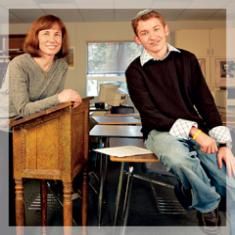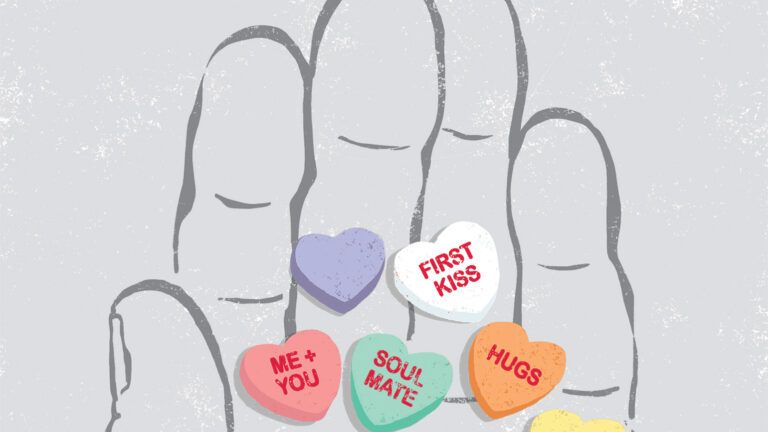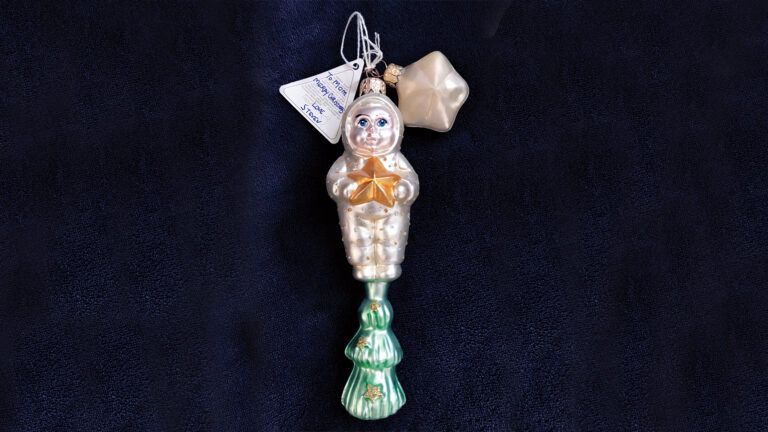I feel a hand on my shoulder as I lie in bed. It’s my oldest brother, Mayer, shaking me awake. I bury my head deep into the pillow.
“Don’t worry,” I say. “My alarm is set.”
“Zach, please. I have bad news.”
I roll over and peer through the darkness at Mayer. “What is it?” I ask sleepily.
“Ari passed away during the night,” Mayer says.
I tiptoe down the stairs in my T-shirt and boxer shorts. Afraid to enter my brother Ari’s room, I peek through the door frame. My knees tremble, my temples thump, my heart pounds. There is my 16-year-old brother, Ari, his head bald from chemotherapy, lying lifeless in bed. My eyes widen and glaze with tears. I grab the wall to keep steady.
Dawn seeps through the windows and casts long shadows. I see my parents, Mayer and a family friend, Viviane, at the foot of Ari’s bed. My parents are hugging. Mayer and Viviane hold hands. I inch into the room. It feels cold and drafty. I look at Ari. It makes no sense. There is Ari’s body, but Ari is somewhere else. How did this happen?
A few hours earlier I’d been celebrating the Jewish holiday of Sukkot at a friend’s house. For the past week, we’d been reenacting that ancient time in Jerusalem when every Jew, young and old, rich and poor, came together to celebrate their unity with God and each other. The group of us ate all our meals in a sukkah, a shelter we’d built for the holiday roofed with branches and leaves. We’d abstained from making phone calls, driving, even using electricity. We’d left the distractions of the world behind so we could focus on God, rejoice in one another’s company and enjoy simple pleasures such as playing board games, telling stories and nibbling challah bread dipped in honey.
Then my friend Dena came running in. “Zach,” she said. I looked up from my game of checkers. “Thank God you’re here. You need to get home. Ari has slipped into a coma.”
I bolted out of the sukkah in my dress clothes and Shabbat shoes. I ran through the alley and down the hill. My face was hot and my lungs begged for air. It was early evening and the sun was going down. I hurried up our driveway, thrust open the front door and walked into the living room. There sat my parents and Mayer, hands clasped, comforted by Rabbi Kletenik. My mother’s eyes were red from crying.
“Odds are that Ari will not regain consciousness,” the rabbi said. “He might not make it through the night. Mayer should say Vidui (‘confession’) and Shema (‘the holy prayer of Jews’) on Ari’s behalf.”
Mayer grabbed a prayer book and went to Ari’s room. I heard him chant the first bit of prayer: Shema Yisrael (“Hear O Israel”) before he closed the door behind him.
When Mayer finished I went to visit Ari. I pulled a chair up to his bed and started reading from the prayer book. As I recited the words, I listened to Ari’s labored breathing. It was getting dark, past sunset, almost time for Ma’ariv, the closing prayer for the day. Time to head to synagogue. I whispered goodnight to Ari and opened the bedroom door.
In our living room, many from our congregation had gathered. How did they know? They couldn’t use their telephones. How had they gotten here so quickly without their cars?
My father pulled me aside. “It’s time to begin Ma’ariv,” he said. “Tonight, because of Ari, we’re going to pray at home instead of at synagogue. Zach, will you please lead the prayer?”
I walked to the front of the room and faced east, toward Jerusalem. Behind me stood the congregation with their prayer books in hand. I began to read. “Baruch et Hashem Ham ‘vorach (‘Blessed is God, the one who blesses’),” I began, my voice trembling.
“Baruch Hashem Ham ‘vorach L’olam Va’ed (‘Bless God, the one who blesses the world forever and ever’),” the congregation responded.
“Baruch Atah Hashem. Golel or mip’nay choshech (‘Blessed are you, God, who reveals light in the face of darkness’),” I continued, my voice growing stronger. I could feel God’s presence, close to me, close to Ari, close to everyone in the room. God was bringing us together. He was supporting us.
Then the night came and darkness engulfed our house. Now it is hours later. The congregation is long gone. It’s just me, my brother Mayer, my parents and Viviane. And Ari. I see Ari’s body. But where is Ari? I look in the faces of the mourners circling the bed. Daylight filters through the blinds. Where is Ari? I wonder again. Then suddenly I understand. Ari is here. With me, my family, with members of our congregation. And we are all with God.





